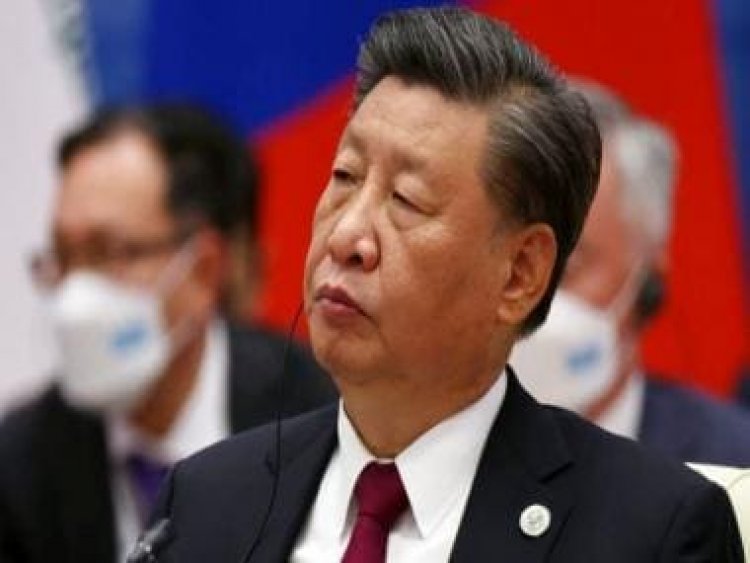20th Party Congress: Xi Jinping and the band of powerful men behind him
20th Party Congress: Xi Jinping and the band of powerful men behind him

Xi Jinping represents a phenomenon in contemporary Chinese politics due to his meticulous consolidation of power at all levers of the Party-State system during the course of his last two terms as the General-Secretary of the Communist Party of China (CCP). A prominent instrument of Xi-Jinping’s signature politics has been his control over the political-legal (Zhengfa), and the anti-corruption apparatus of the CCP. This Leninist-bureaucracy is not only at the epicentre of Xi’s anti-corruption campaign, but is also entrusted with maintaining ‘political security’ in China. As the CCP is slated to hold its 20th Party Congress from 16 October, the personnel composition of these bodies underscores the emerging contours of Chinese domestic politics.
The politico-legal and anti-corruption edifice comprises three inter-connected organisations-the National Supervisory Commission (NSC), the Central Commission for Discipline Inspection (CCDI) and the Central Political and Legal Affairs Commission (CPLAC).
At present, NSC is headed by politburo member Yang Xiaodu. Concurrently, Yang also serves as the Deputy Secretary of the CCDI. Sitting atop these three positions makes Yang one of the most powerful men in Chinese politics. Furthermore, Yang’s rise within the central anti-corruption system is closely linked with one of Xi’s closest aides, Wang Qishan with whom Yang first worked at the Central Leading Group for Inspection in 2013. However, if the CCP sticks to the retirement-age norm, Yang, at 69, shall retire from the Politburo at the upcoming Congress. Nevertheless, as per the latest round of administrative reshuffle, there appears to be no clear successor-designate for Yang within the anti-corruption apparatus.
Other personnel from the NSC who are expected to play a prominent role within Chinese politics in the coming years include Xu Lingyi and Chen Xiaojiang. Xu serves as the deputy director at both the NSC and the CCDI. Interestingly, Xu arrived at Beijing’s political scene just a year after Xi Jinping in 2008. Once Xi’s anti-corruption campaign began to acquire full force in 2014, Xu was transferred to the CCDI in 2015. Chen who earlier served on both CCDI and NSC is likely to replace You Quan as the head the powerful United Front Works Department (UFWD) which is a key organisation of CCP’s propaganda machinery.
Within CCDI, one of the most important faces to watch is Li Shulei. Li has served on the CCDI since the beginning of Xi’s first tenure in 2012. In April this year, he was designated as the deputy head of the Publicity Department of the CCP. Therefore, at the 20th Party Congress, he is most-likely to be promoted to the coveted Politburo. Another important name is that of General Zhang Shengmin who heads the military branch of the CCDI. Curiously, Zhang’s rise as the member of the all-powerful Central Military Commission (CMC), and the CCDI is closely linked with the downfall of the earliest ‘tigers’ of Xi’s anti-corruption within the Chinese military- Guo Boxiong and Xu Caihou.
The incumbent secretary-general of the CCDI, Yang Xiaochao though has not received any promotion in the recent round of administrative reshuffle, is important as he holds long experience within the finance and audit sectors. This appears in syn with the anti-corruption campaign’s renewed thrust on China’s banking and financial system.
At the CPLAC, Chen Yixin in all likelihood will succeed Guo Shengkun. Therefore, as per the hitherto followed norms, Chen as the CPLAC head, shall also get a seat at the Politburo. Following earlier precedent, Wang Xiaohong as the newly-appointed Minster of Public Security shall replace Zhao Kezhi as the deputy secretary of the CPLAC.
It is worth noting that before Zhao Kezhi, the Minister of Public Security in most cases was promoted to head the CPLAC. However, when Zhao assumed the leadership of the ministry in 2017, he had already reached the age of 64, and therefore, could not receive another promotion. Now, Wang’s appointment at 65 disqualifies him from being promoted to CPLAC five years down the lane. This development signals a dilution in the status of the Ministry of Public Security (MPS) and follows the trend of a gradual weakening of state-organs under Xi Jinping.
The apparent downgrade in the status of MPS is also interesting as the People’s Police which is responsible for maintaining social stability in China falls under the jurisdiction of this ministry. Furthermore, both CPLAC and MPS represent the system where the influence of China’s disgraced former security-czar, Zhou Yongkang was most pronounced. One of Xi’s first moves after assuming the leadership of the Party in 2012 was to downgrade the seat of the CPLAC head from the Politburo Stading Committee (PBSC) to the Politburo.
As Xi Jinping begins his next stint at the apex of the CCP at the upcoming Party Congress, some of the aforementioned names are poised to be become the core members of his administrative team beyond the Politburo. However, in Xi Jinping scheme of things, the fine line between allies and foes is often breached. Therefore, the career trajectories of these men hold clues to the future course of Chinese politics.
The author is a scholar of Chinese elite politics based in Taiwan. Views expressed are personal.
Read all the Latest News, Trending News, Cricket News, Bollywood News,
India News and Entertainment News here. Follow us on Facebook, Twitter and Instagram.
What's Your Reaction?


























































